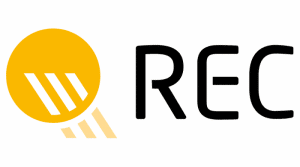With its vast coastline, Australia is prone to cyclones, particularly in the northern regions. As a home or business owner with a solar panel system, it’s crucial to understand the potential risks and take proactive steps to ensure your solar panels are cyclone-ready. This article will guide you through essential measures to protect your investment and maintain uninterrupted solar power generation during cyclone season.
Understanding the cyclone threat
Before delving into protection strategies, it’s essential to grasp the nature of cyclones. These intense tropical storms bring high winds, heavy rainfall, and storm surges, posing significant threats to property and infrastructure. The Australian Bureau of Meteorology provides regular updates and cyclone forecasts, allowing residents to prepare accordingly.
Choosing the right solar panels and installation
The foundation for cyclone-proof solar panels lies in the initial installation. Consider the following factors when selecting and installing your system:
1. Invest in cyclone-rated solar panels and inverters
The initial installation is the foundation of cyclone-proof solar panels and inverters. Opt for a system designed to withstand extreme weather conditions.
Solar panels: Opt for solar panels designed to withstand high winds and other extreme weather conditions. These panels undergo rigorous testing to ensure their durability.
The role of solar inverters: Your solar inverter plays a vital role in system performance and safety.
- Cyclone-rated inverters: Consider investing in an inverter to withstand harsh weather conditions.
- Proper installation: Ensure your solar inverter is installed in a protected location, away from potential water damage.
- Regular maintenance: Follow the manufacturer’s guidelines for inverter maintenance.
Energy Matters’ recommended quality solar panels and inverters such as (click the logo to learn more):
2. Robust mounting systems
A robust mounting system is crucial for securing your panels to the roof. Look for systems that comply with Australian Standards and are explicitly designed for cyclone-prone regions.
- Reinforced frames: Ensure the mounting frames are made from durable materials and are adequately reinforced to withstand high winds.
- Secure fastenings: All bolts, screws, and other fastenings should be corrosion-resistant and tightened securely.
- Regular inspections: Conduct routine inspections of the mounting system to identify signs of wear or damage.
3. Regular inspections
Conduct routine inspections of your solar panel system before the cyclone season begins to identify potential issues, such as loose connections or damaged components.
4. Professional installation
Hiring a qualified and experienced solar installer is vital. They will ensure proper adherence to building codes and local regulations, minimising the risk of damage during a cyclone.
Embrace the energy efficiency revolution by upgrading your solar systems and adding a battery or solar inverters with Energy Matters. Energy Matters helps Australian home and business owners receive personalised solar quotes through our large network of high-quality solar installers.
With our 3 free solar quotes, you can compare plans from pre-qualified and vetted solar installers in your area and find the perfect solution for your home and business.
Essential protection measures
In addition to careful selection and installation, several proactive measures can further enhance your solar panels’ resilience to cyclones:
- Tree trimming: Regularly prune trees near your roof to prevent branches from damaging your solar panels during strong winds.
- Debris removal: Clear gutters, roofs, and surrounding areas of loose debris to reduce the risk of damage to your solar panels.
- Emergency shutdown: Familiarize yourself with the emergency shutdown procedures for your solar system. This can help prevent electrical hazards in case of severe damage.
- Insurance coverage: Review your home insurance policy to ensure it covers damage to your solar panel system caused by cyclones.
- Solar battery backup: Investing in a solar battery storage system can provide a reliable power source during and after a cyclone, reducing reliance on the grid.
Use Energy Matters’ easy-to-use solar power and battery storage calculator to determine the size of your solar system with storage! Our solar calculator will generate performance information and potential savings.
We can send this information to 3 of our pre-vetted and trusted local installers in your area to receive obligation-free solar quotes.

What to do during and after a cyclone?
For added peace of mind, consider these guidelines:
Preparing for a cyclone
When a cyclone warning is issued, it’s essential to prioritise safety. Follow these guidelines:
- Secure loose items: Bring indoors or securely tie down any outdoor objects that could become projectiles during the storm.
- Unplug appliances: Disconnect non-essential appliances from the power grid to protect them from electrical surges.
- Disconnect inverter: If advised by authorities, disconnect your solar inverter from the grid to protect your system from power surges.
- Stay informed: Monitor weather updates and follow evacuation orders if necessary.
- Avoid contact with electrical equipment: Avoid downed power lines and damaged electrical equipment to prevent electrocution.
- Backup power: Consider investing in a battery backup system to ensure you have power during and after a cyclone.
Energy Matters’ recommended quality solar battery power systems such as (click the logo to learn more):
Post-cyclone assessment and recovery
Once the cyclone has passed, carefully inspect your solar panel system for damage. If you lack expertise, avoid attempting repairs yourself. Contact a qualified solar technician to assess the situation and recommend necessary actions. Your insurance provider may cover the repair or replacement costs if your solar panels have sustained significant damage. Document all damage with photos and contact your insurer promptly.
- Qualified inspection: If you suspect damage, contact a qualified solar technician for a thorough assessment. The technician should assess the condition of your panels, mounting system, and inverter.
- Insurance claims: Document any damage with photos and contact your insurance provider to initiate a claim.
Additional tips
- Stay informed: Keep up-to-date with weather forecasts and cyclone warnings.
- Emergency kit: Prepare an emergency kit with essential supplies, including flashlights, batteries, first aid supplies, and non-perishable food.
- Evacuation plan: Have a plan for evacuating your family and pets if necessary.
Source: Eco Tech Electrical, QBE News
Ensuring solar panel safety in cyclones
Ensuring your solar panels are cyclone-ready is an investment in protection and peace of mind. By following these guidelines, you can significantly reduce the risk of damage to your solar system and maintain uninterrupted clean energy generation even during the most challenging weather conditions.
Following these guidelines can significantly increase the chances of your solar panels surviving a cyclone, significantly reduce the risk of damage to your solar system and maintain uninterrupted clean energy generation even during the most challenging weather conditions. Remember, prevention is always better than cure. Investing time and effort in cyclone-proofing your solar system will provide peace of mind during the storm season.
Going solar
Are you looking to save money on your electricity bills and reduce your carbon footprint? Solar energy is the perfect solution! Energy Matters is the leading supplier of solar quotes in Australia due to its vast partnership network of high-quality installers. With Energy Matters, you can be sure you’re getting the best possible deal on solar energy.
Energy Matters helps Australian home and business owners receive personalised solar quotes through our large network of high-quality solar installers. With Energy Matters, you can be sure you’re getting the best possible deal on solar energy. We only work with reputable solar installers with a proven track record of delivering high-quality solar systems.


























































